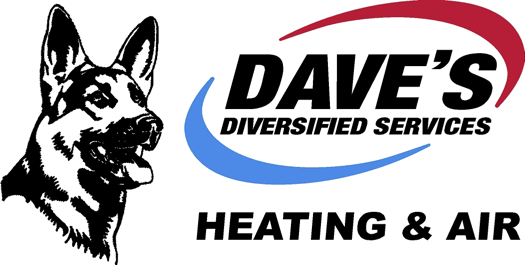
If you’re questioning whether your Front Royal house has bad indoor air quality (IAQ), it probably does.
We are indoors a lot. As a matter of fact, we’re inside up to 90% of the time, according to the U.S. Environmental Protection Agency. And the air inside residences could be 2–5 times worse than outdoors, which can create long-term health concerns.
Most Common Sources of Unsatisfactory IAQ
We’ve made a list of the most frequent origins of inferior IAQ, the issues they make and how you can remedy these indoor air pollutants. If you’re worried about the air inside your residence, we recommend consulting with a professional like Dave's Diversified Services about which options are a good fit for your family.
Volatile Organic Compounds
Volatile organic compounds, or VOCs, are fumes emitted from common household things.
They’re found in paint and stains in addition to:
- Furniture
- Carpet
- Building materials
- Cleaning products
- Cosmetics
- Air fresheners
- Candles
When these fumes accumulate indoors, they can irritate your eyes, nose and throat. They can also create headaches and nausea. Regardless of whether your home is in a rural or industrial space, an EPA study found indoor levels of these chemicals can be 2–5 times higher than the air outside.
Always use the manufacturer’s directions when applying paint or spraying cleaning products. Opening a window can help fumes disperse faster.
Air purification systems can also help. This unit partners with your heating and cooling system to improve indoor air. When seeking one, ensure it’s specifically made to eradicate VOCs.
Dust and Pet Dander
Dust and pet dander can trigger health problems like asthma and allergies, especially when it constantly gets recirculated by your house’s comfort system. While you can vacuum more frequently and install an improved air filter, an air filtration system could be a better fit.
This unit hooks to your comfort equipment to deliver mighty filtration. Some kinds provide hospital-level filtration for getting rid of particles and bioaerosols.
Lasting Odors
New residences are tightly sealed to increase energy efficiency. While this is fantastic for your energy expenses, it’s not so good for your IAQ.
Stuffy odors can stay around for a greater amount of time as your residence is pulling in less fresh air. As keeping your windows open throughout the year isn’t an option, here are two ways you can make your indoor air smell cleaner.
An air purification system is placed in your ductwork to neutralize odors before they get released again. Look for one with a carbon filter and the ability to eliminate dangerous VOCs. This equipment can also help keep your household healthy by wiping out most bacteria and ordinary allergy triggers like pollen and mold spores.
A ventilation system takes out stuffy indoor air and substitutes it with clean outdoor air. There are two types of units (heat recovery and energy recovery), so ask our professionals for more details on which kind is right for your house.
Unsteady Humidity
It’s critical your house’s humidity remains even. Air that has too much moisture can cause mold, while dry air can lead to respiratory issues.
Our professionals suggest 40–50% for the best comfort. To keep yours steady, consider getting a whole-home humidifier or whole-home dehumidifier with your heating and cooling unit.
In place of having to pull a humidifier from room to room, this product delivers balanced humidity throughout your house.
Carbon Monoxide
Carbon monoxide is colorless gas you can’t smell. It’s caused by insufficient combustion in fuel-burning units, like gas heating systems, water heaters or fireplaces.
It produces an extreme health risk. In small levels, it can create flu-like symptoms like headaches and nausea. It can be deadly in big concentrations.
We suggest yearly furnace maintenance to double-check your equipment is running like it should. This work allows our techs to see problems before they begin, including malfunctions that can cause carbon monoxide leaks.
The best approach to keep your house free of carbon monoxide is to put in detectors. These alarms must be on each floor close to bedrooms and living rooms.
Better Your House’s Air Quality with the Dave's Diversified Services Professionals
Informed that your residence has bad air quality but not sure how to enhance it? Or unsure which product is a good fit for you? Give our friendly HVAC pros a call at 540-636-3396 or contact us online today. With free estimates and professional assistance, we’ll help you choose the ideal solution for your family and budget.
